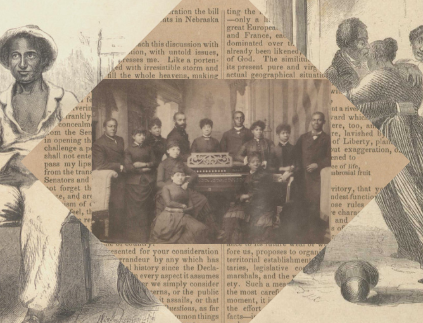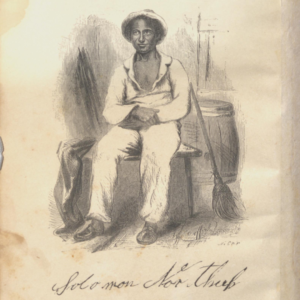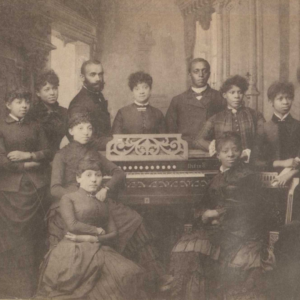
On June 19, 1865, Union troops arrived in Galveston, Texas with the news that the more than 250,000 enslaved people in the state were free. This day came to be known as Juneteenth and is now officially a federal holiday.
To honor the hardships and enduring spirit that led up to this historic day that brought about a new era of hope, inspiration and empowerment, we invite you to check out the following books and other materials from the 19th century that we are fortunate to have as part of our Special Collections.

- Twelve Years a Slave: Narrative of Solomon Northup, a citizen of New-York, kidnapped in Washington City in 1841, and rescued in 1853, from a cotton plantation near the Red River, in Louisiana (1853) by Solomon Northup – This book describes the life in slavery of Solomon Northup who was born a free Black man. This edition includes frontispiece and plates*.
- The Literature of the Rebellion: A catalogue of books and pamphlets relating to the Civil War in the United States, and on subjects growing out of that event, together with works on American slavery, and essays from reviews on the same subjects (1866) – This collection of works was compiled by John Russell Bartlett.
- The Story of the Jubilee Singers: With Their Songs (circa 1880) by J. B. T. Marsh – This work featuring the Fisk Jubilee Singers includes personal stories of the singers, many of them emancipated from slavery, along with African American spirituals. This book is part of the Robert Guy McCutchan Collection of Hymnology.
- The Results of Emancipation (1863) by Augustin Cochin – The author was a French politician and writer who was knighted by Pope Pius IX for his work advocating for the abolition of slavery. This book is part of the Frances Haynes Lindley Memorial Collection, which covers a wide range of subjects including history, literature, poetry, drama and travel.
- Works by Hon. Charles Sumner – The author was an American statesman and U.S. Senator from Massachusetts who led anti-slavery forces and acted as a promoter of equal rights to freedmen.
- The Landmark of Freedom Speech (printed at the Professional Globe Office in 1854) – This speech was made in the Senate to speak out against repeal of the Missouri prohibition of slavery north of the 36º 30′ parallel. This is part of the Speeches in House and Senate, 1854, on Kansas and Nebraska Territorial Bill Collection.
- Slavery and the Rebellion, One and Inseparable (1864) – A speech before the New York Young Men’s Republican Union at Cooper Institute, New York, on the afternoon of November 5, 1864.
- The Iron Furnace, or, Slavery and Secession (1863) by John H. Aughey – The author was a reverend and a refugee from Mississippi. This edition includes frontispiece and plates*.

If you are interested in examining any of these materials, we invite you to make a Special Collections Reading Room appointment. Questions can be directed to specialcollections@claremont.edu or (909) 607-3977.
– – – – –
*A frontispiece is a decorative or informative illustration facing a book’s title page. Plates are full page illustrations, pictures or photographs that are printed separately from the text of the book and then bound in during production. These features add detail, color and texture to books.